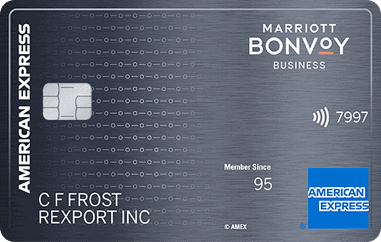
Long before I started MilesTalk, I was in the camp of “I’d never pay an annual fee for a credit card.” I couldn’t understand why anyone would, given that the card companies make so much money off of swipe fees.
In this article
Premium and Ultra-Premium Cards Have a Place in My Wallet
Fast forward many years and I have a wallet – and desk drawer – full of premium and ultra-premium credit cards, with annual fees going as high as $550.
(And no, I don’t have an Amex Centurion, a.k.a. the Black Card, as even when the fee was “only” $1,000 a year with a $2,500 initiation fee – much lower than the $5,000 annual fee and $10,000 initiation fee it currently charges, I never thought there was a solid value proposition.)
I carry so many of these premium cards because I’ve determined that the annual fee is worth it, meaning that I extract more in value each year than I pay in annual fees.
However, many (or most) of these cards are worth the annual fee only because they provide tangible value that relates to travel. From annual free hotel nights to airline credits and resort fees, as well as airport lounge access and status, they aren’t worth much if you can’t get on a plane or stay in a hotel.
In all cases, I think it’s worth a shot to call the credit card issuer and see if there’s anything that can be done to accommodate you. For example, I called American Express about my Hilton Aspire. I explained that I was slated to use my $250 annual resort credit this month, but having had to reschedule my wedding and honeymoon under the current circumstances, I asked if it could be extended to the end of the year. Unfortunately, I was denied. So, I guess that’s not a great story – but I still think it’s worth asking. They should, in theory, have some leeway on statement credits or the like.
Keep in mind: You won’t be able to downgrade a card you have held for less than 1 year (exactly 365 days) with any issuer. Cancelling before then would severely affect your relationship with that bank, so if it’s a new card, wait until your fee is due to evaluate it again.
Below are some of the most popular premium credit cards, what annual benefits you can’t use for a while, and card downgrade options:
I’ll order these by annual fee, highest to lowest.
Business Platinum Card from American Express
Perks you can’t currently use:
- Centurion Lounge Access
- Delta SkyClub Lounge Access
- Priority Pass Lounge Access
- $200 annual airline incidental credit (seat selection, baggage, change fees, etc)
Downgrade Options:
- American Express Business Gold Card (Annual fee: $295)
- Business Green Rewards Card from American Express (Annual fee: $95)
Cancellation considerations:
If you were to cancel, you would lose all of your Membership Rewards points unless you have another card that earns Membership Rewards. The best fee-free business card option is the Blue Business Plus Credit Card from American Express.
My thoughts:
If you are near card renewal, this is excellent leverage for a retention offer. I have not yet heard of any automatic concessions from Amex, however. It’s frustrating that there are no fee-free options to downgrade to if you want to preserve the credit card number and history, so if I were really not using the card at all now, I’d most likely downgrade to the Business Green Rewards Card from American Express and hope for an upgrade offer when this is all over. It’s worth noting that I just recently was targeted for an upgrade offer on my Business Green Rewards Card to upgrade to the Business Platinum Card where I earned 75,000 bonus Membership Rewards for $20,000 in spend over 3 months.
As well, there are numerous reports of retention offers on this card, up to 50,000 Membership Rewards points or $500 – some with a spend requirement and some as an outright gift. I tried myself but as I had just upgraded to the card in January, I’m not yet eligible for such an offer.
American Express Platinum Card
Annual Fee: $550
Perks you can’t currently use:
- Centurion Lounge Access
- Delta SkyClub Lounge Access
- Priority Pass Lounge Access
- $200 annual airline incidental credit (seat selection, baggage, change fees, etc)
Note: While you might initially think that the $200 in yearly Uber credits are a loss, they aren’t because you can spend them on Uber Eats food delivery.
Downgrade Options:
- American Express Gold Card (Annual fee: $250)
- American Express Green Card (Annual fee: $150)
Cancellation considerations:
If you were to cancel, you would lose all of your Membership Rewards points unless you have another card that earns Membership Rewards. The best fee-free personal card option is the Amex Everyday credit card.
My thoughts:
If you are near card renewal, this is excellent leverage for a retention offer. I have not yet heard of any automatic concessions from Amex, however. It’s frustrating that there are no fee-free options to downgrade to if you want to preserve the credit card number and history, so if I were really not using the card at all now, I’d consider a downgrade to the American Express Gold Card if I had already received the bonus offer on that card (otherwise, don’t downgrade as it would eliminate your ability to get the welcome bonus on it in the future. I’d also only recommend the Gold Card if you’ll take advantage of the $10/month GrubHub credit and/or spend a lot on groceries and dining where it earns 4X.
If not, I’d downgrade to the American Express Green Card with a $150 fee and hope for an upgrade offer next year back to Platinum.
Like the Business Platinum card, there are many reports of customers getting retention offers on this card, up to 50,000 Membership Rewards points or $500 – some with a spend requirement and that don’t even require that. As always, your history with Amex will be the deciding factor.
Chase Sapphire Reserve
Perks you can’t currently use:
- Priority Pass Lounge Access
Perks you can’t currently easily use:
- $300 annual travel credit
Downgrade Options:
- Chase Sapphire Preferred: ($95 annual fee)
- Chase Freedom Unlimited: (No annual fee)
- Chase Freedom (No annual fee)
Cancellation considerations:
If you were to cancel, you would lose all of your Ultimate Rewards points unless you have another card that earns Ultimate Rewards. There’s no reason to do so, since you can downgrade the card to fee-free options if you don’t have another card.
My thoughts:
It’s very easy to use the annual $300 travel credit since it’s automatic and on such a wide range of purchases. Likely you either used some/all of it before the pandemic started or will have time to use it after.
If you were to downgrade, remember only the Chase Sapphire Preferred allows you to transfer to travel partners or redeem in the travel portal for a reduced 1.25 cents per point rate (compared to 1.5 cents on the Reserve).
Note that if you annual fee is due in April, May, or June you can expect an automatic $100 credit from Chase.
Citi Prestige®
Annual Fee: $495
Perks you can’t currently use:
- Priority Pass Lounge Access
- $250 annual travel credit
Perks you can’t currently easily use:
- 4th Night Free benefit
Downgrade Options:
- Citi Premier® Credit Card ($95 annual fee, preserves ThankYou points)
- Citi Rewards+® (no annual fee, preserves ThankYou points)
- Citi ThankYou Preferred (no annual fee, preserves ThankYou points)
- Citi® Double Cash (no annual fee; preserves ThankYou points)
Cancellation considerations:
If you were to cancel, you would lose all of your ThankYou points 60 days later, unless you downgraded to a Premier, Rewards+, or ThankYou Preferred card.
You can also product change to the fantastic Double Cash card that earns 2X on everything uncapped, but doing so would wipe out your ThankYou points from the Prestige if not used with 60 days.
Unlike Chase or Amex, simply having another premium ThankYou card will not preserve points earned from the one you are cancelling.
The best product change, assuming you already have a Double Cash (you should, not that they convert 1:1 to ThankYou points) is a Rewards+ because having the Rewards+ will grant you a 10% rebate on all ThankYou points spent annually, up to 10,000 rebated points each year, with no annual fee.
However, you still need either a Premier or a Prestige in order to transfer ThankYou points to airlines. So, if you don’t already have a Premier, and you downgraded to anything but a Premier, you would not be able to transfer ThankYou points to any partner (except JetBlue which is almost never a worthwhile transfer anyway).
Retention Offer:
If you call the number on the back of your card and specifically ask for the Retention Department, they may be able to make you a deal. Here is what I was offered:
- Spend $5,000 total within 3 months for at $250 statement credit
- Spend $4,000 per month for 3 months straight for 20,000 ThankYou points
- Spend $3,000 in 3 months for $50 credit
- Spend $3,000 in 3 months for 10,000 TYP
I took the first offer. I wanted the points from the second offer but at $12,000 total, it was a bit rich.
My thoughts:
I pretty much said it all in the cancellation considerations. Read up on the Citi Trifecta / Citi Quadfecta to understand more how these cards all play together.
Hilton Honors Aspire Card from American Express
Annual Fee: $450
Perks you can’t currently use:
- Priority Pass Lounge Access
- $250 cardmember year Hilton resort credit
- $250 calendar year airline fee credit (seat selection, baggage, change fees, etc)
Perks you can’t currently easily use:
- Hilton Diamond status
- Annual Free Weekend Night (this should realistically be easy to use with one year and Hilton has already proactively extended certificates expiring this year).
Downgrade Options:
- Hilton Honors Surpass Card from American Express ($95 annual fee)
- Hilton Honors Card from American Express (no annual fee)
Cancellation considerations:
You would not lose any Hilton points by cancelling, though I don’t think you should outright cancel.
My thoughts:
This card is truly a winner in normal times. Despite the $450 annual fee, you get top tier Hilton status and $500 in annual credits. As long as you have a way to use the Free Weekend Night, annual incidental airline credits and stay at one Hilton resort per year to use the resort credit, you are essentially paid to have the card.
At this point in time, you should see where you are at in your cardmember year (when you renew) and see what credits you were lucky enough to use before this all started. If you don’t think you’ll be traveling over the next year, it would make the most sense to downgrade to the no-annual fee Hilton Honors card.
The reason is two-fold: You’ll have no fee and you will likely get targeted later on to upgrade back to the Aspire with an offer of more than 100,000 Hilton Honors points with some amount of spend.
Marriott Bonvoy Brilliant American Express Card
Perks you can’t currently use:
- $300 annual Marriott on-property credit
Perks you can’t currently easily use:
- Annual free night certificate for a room costing up to 50,000 points.
Downgrade Options:
- Bonvoy Amex card ($95 annual fee)
Cancellation considerations:
You would not lose any Marriott points by cancelling, though I don’t think you should outright cancel.
My thoughts:
If you don’t anticipate getting value out of the 50k free night and the $300 travel credit, downgrade to the $95 Bonvoy Amex and then upgrade when you start traveling again, preferably when Amex puts an upgrade offer on your account for 50,000 – 100,000 Marriott Bonvoy points to go back up to the Bonvoy Brilliant.
Amex Gold
Annual Fee: $250
Perks you can’t currently use:
- $100 annual incidental airline credit
Perks you can’t currently easily use:
- None, really. You can use the $10 monthly dining credit on deliveries.
Downgrade Options:
- American Express Green Card ($150 annual fee)
Cancellation considerations:
If you were to cancel, you would lose all of your Membership Rewards points unless you have another card that earns Membership Rewards. The best fee-free personal card option is the Amex Everyday credit card.
Retention Offer
I called in about this card and received a retention offer for 20,000 Membership Rewards points or $150 for spending $3,000 within 3 months. That certainly makes up for if I can’t spend the $100 in incidental credits this year. Be sure to tell the front line rep you are thinking about downgrading or cancelling and the’ll transfer you if you have any offers. Just don’t let them actually cancel it unless that is your goal. You might say you’d like to discuss options including cancellation and downgrading.
My thoughts:
This is a great card and you are more than likely using it for lots of groceries during this time, earning 4X. Plus, you can order delivery at least once a month to use the $10 monthly GrubHub credit. The only thing you would lose is the $100 airline credit, and so you may find it worth calling in – or you may not. But I wouldn’t cancel it nor would I downgrade to the Green card which doesn’t offer the great earnings on dining and groceries, nor the $100 annual airline credit, nor the $10 a month dining credit – and it’s only $100 less per year in annual fees.
In Summary
Only your situation can guide you in what to actually do. Given that we can’t travel for the foreseeable, it may make sense to scale back on your high annual fee travel cards for the time being. If you choose to explore that, you now have all of your options. If I missed anything, let me know!
Have you downgraded or cancelled any premium travel credit cards?
Let me know here, on Twitter, or in the private MilesTalk Facebook group.
You can find credit cards that best match your spending habits and bonus categories at Your Best Credit Cards.
New to all of this? The MilesTalk “introduction to miles and points” book, MilesTalk: Live Your Wildest Travel Dreams Using Miles and Points is available on Amazon and at major booksellers.




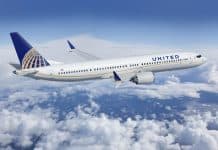







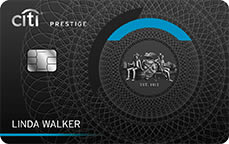





![[LAST CALL] Eligibility for Chase Ink Business Cash 10% Relationship Bonus Benefit Ending Nov. 17 Chase Bank](https://milestalk.com/wp-content/uploads/2024/10/IMG_4295-3-218x150.jpg)
